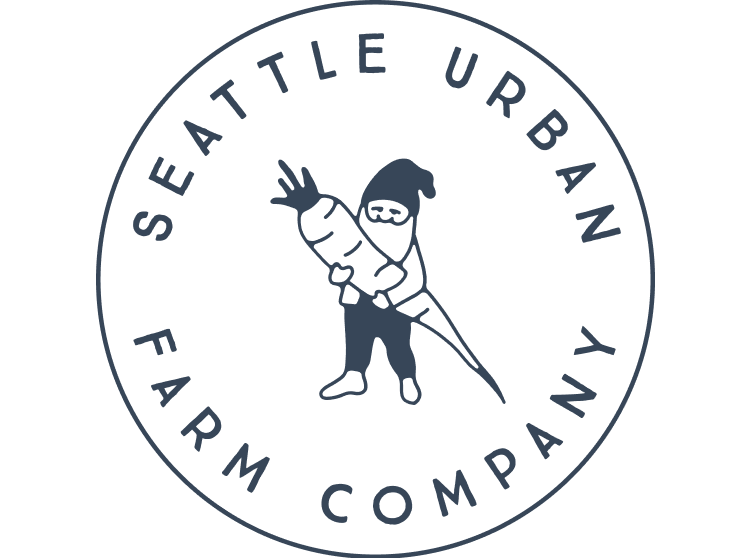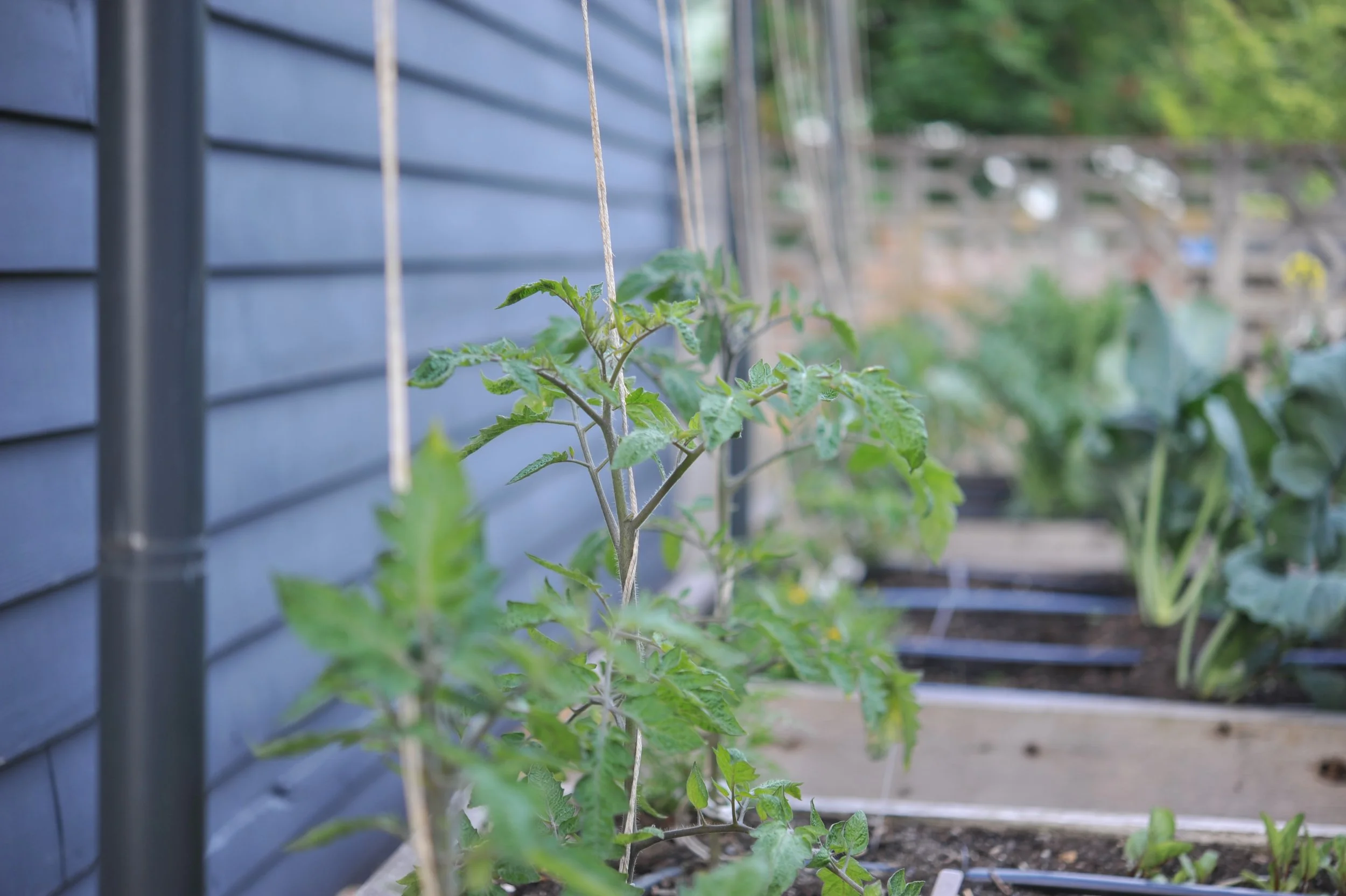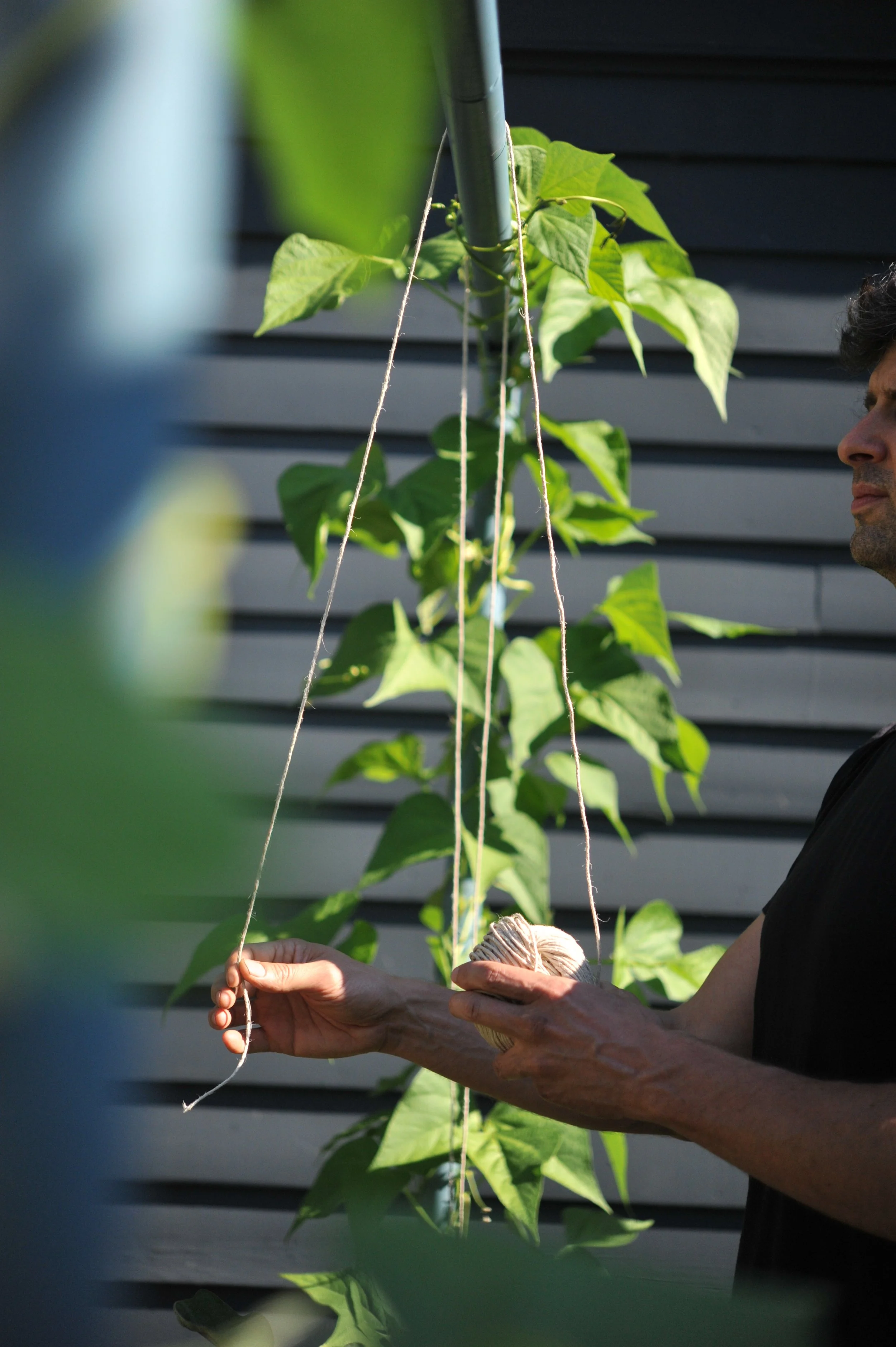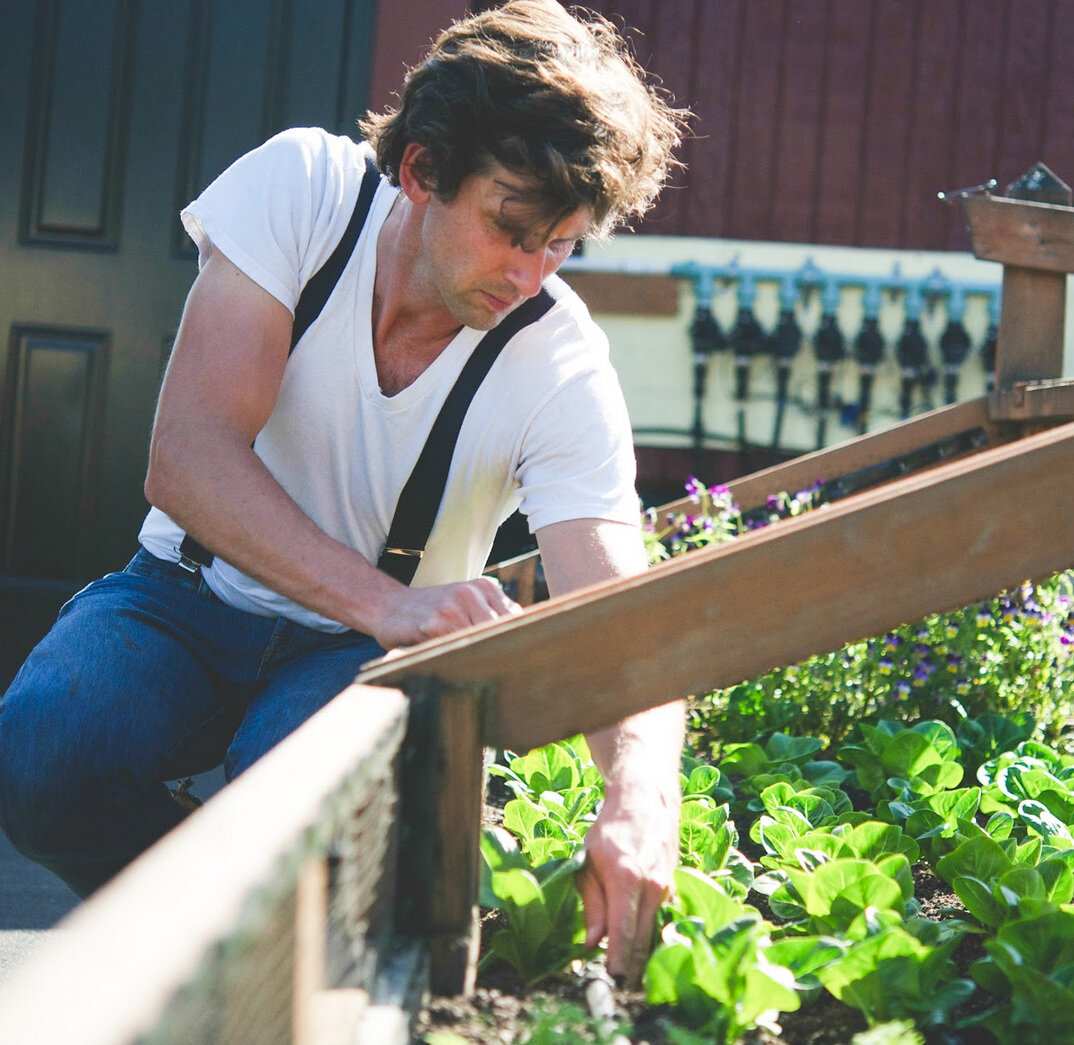Hemp’s strength and natural rot-resistance makes it a great support for climbing crops
When we started offering biodegradable twines, our goal was to:
Make it easier for people to garden with natural materials
Reduce the amount of plastic in the landscape
Make end-of-season garden cleanup easier
We chose hemp as our first twine product because of its strength and rot resistance, and because it's one of the most environmentally-sound materials available. We didn’t perform any of our own environmental impact studies, but to the best of our knowledge, here’s why hemp is a great alternative to plastics in the garden:
Carbon capture champion
Hemp is a powerhouse when it comes to pulling carbon out of the atmosphere—absorbing roughly 1.6 tons of CO₂ for every ton of hemp produced. That makes it one of the most effective crops for carbon sequestration on the planet.Healthy soil, happy plants
With deep, fibrous roots, hemp helps loosen compacted soil, prevent erosion, and build healthy soil structure. After harvest, the leftover plant material adds organic matter right back into the soil—fuel for future crops.Low-maintenance
Naturally resistant to many pests and weeds, hemp can thrive without the heavy use of herbicides and pesticides. That means cleaner soil, cleaner water, and a healthier ecosystem overall.Water-wise crop
Compared to many other industrial crops, hemp is a water-sipper. It often grows well on rainfall alone—making it a smart option for regions facing water stress.Built to break down
Hemp-based products are fully biodegradable, meaning they return to the earth instead of lingering in landfills.Supports biodiversity
A field of hemp isn’t just good for farmers—it’s good for wildlife too. The dense, varied habitat attracts beneficial insects, birds, and other pollinators.
While the cultivation of pretty much any crop will have some impacts, like nutrient depletion, we’re proud to be able to offer this low-impact alternative. Our hemp products are made in Romania, from hemp grown in Romania.
Tips for use:
Store your hemp twine in a dry place when you’re not using it
Compost your hemp twine the rest of your plants when you’re done with it




